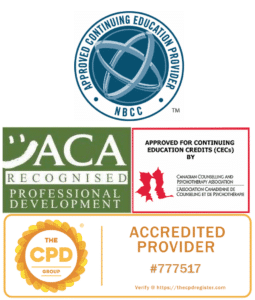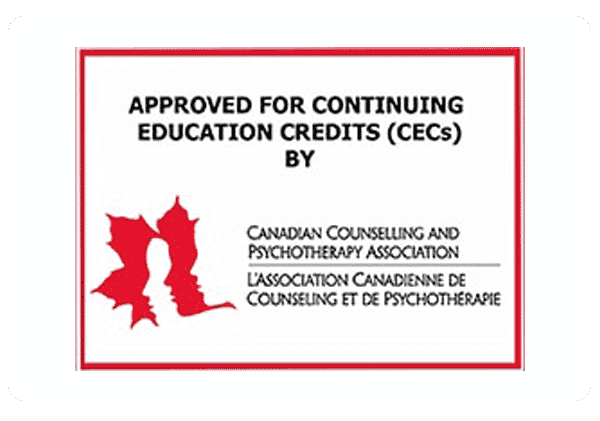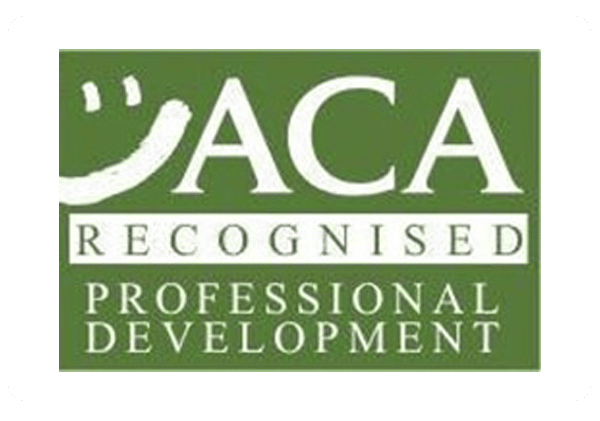Assertiveness Training in Clinical Practice – Dr Randy Paterson
The function of much of therapy is to put clients firmly in charge of their own lives – but if they can’t be assertive, their lives are not truly their own. Assertiveness training is one of the core components of cognitive behavior therapy (CBT) and related therapies, but its implementation is rarely taught in clinical programs. This structured interactive course is designed to fill that gap. Based in part on the ideas in the presenter’s own category-leading guide (The Assertiveness Workbook), the course provides clinicians with the concepts and tools to provide assertive communication skills training to clients one-to-one, whether as an intervention on its own or as part of a broader treatment plan. Tips for adapting the training to a structured interactive group format are also provided, with clear session-by-session breakdowns programs of 8 to 12 sessions. The course is founded on the key principle underlying all assertive behavior: Assertiveness is about controlling our own actions, not the actions of others. By changing our own steps in the dance of communication, we can change the interaction. Read More
The course presents the four basic communication styles (assertive, passive, aggressive, and passive-aggressive), and the motives and underlying beliefs driving each. We examine the barriers preventing our clients – and ourselves – from using the assertive style, including stress-related arousal, relationship history, control dynamics, and unexamined sabotaging beliefs. Specific, action-oriented strategies to overcome each of these challenges are provided. We examine the elements of assertive nonverbal behavior, and the in-session and take-home exercises clients can do to rehearse a new method of self-presentation. Participants receive specific tips and strategies for dealing with the primary boundary-challenging situations: expressing one’s opinion, giving and receiving feedback, saying no, making requests, and dealing with conflict situations. Participants receive a complete set of presentation slides, plus exercise sheets they can reproduce for use with their own clients as in-session and homework exercises.
TRAINING information
The function of much of therapy is to put clients firmly in charge of their own lives – but if they can’t be assertive, their lives are not truly their own. Assertiveness training is one of the core components of cognitive behavior therapy (CBT) and related therapies, but its implementation is rarely taught in clinical programs. This structured interactive course is designed to fill that gap. Based in part on the ideas in the presenter’s own category-leading guide (The Assertiveness Workbook), the course provides clinicians with the concepts and tools to provide assertive communication skills training to clients one-to-one, whether as an intervention on its own or as part of a broader treatment plan. Tips for adapting the training to a structured interactive group format are also provided, with clear session-by-session breakdowns programs of 8 to 12 sessions. The course is founded on the key principle underlying all assertive behavior: Assertiveness is about controlling our own actions, not the actions of others. By changing our own steps in the dance of communication, we can change the interaction. Read More
The course presents the four basic communication styles (assertive, passive, aggressive, and passive-aggressive), and the motives and underlying beliefs driving each. We examine the barriers preventing our clients – and ourselves – from using the assertive style, including stress-related arousal, relationship history, control dynamics, and unexamined sabotaging beliefs. Specific, action-oriented strategies to overcome each of these challenges are provided. We examine the elements of assertive nonverbal behavior, and the in-session and take-home exercises clients can do to rehearse a new method of self-presentation. Participants receive specific tips and strategies for dealing with the primary boundary-challenging situations: expressing one’s opinion, giving and receiving feedback, saying no, making requests, and dealing with conflict situations. Participants receive a complete set of presentation slides, plus exercise sheets they can reproduce for use with their own clients as in-session and homework exercises.
Learning Objectives
Participants will learn:
- To identify the four basic communication styles in action – and teach this recognition to clients.
- To explore with clients the barriers (personal and interactional) that prevent them from using assertiveness skills more effectively.
- To train clients in the skills involved in assertive communication in eight types of interaction (providing opinions, receiving compliments, giving positive feedback, receiving criticism, providing corrective feedback, setting boundaries / saying no, making requests, and handling conflict).
- To make use of provided exercise handouts with clients to enhance knowledge and skill transfer.
- To use specific experiential training skills in session with clients, including modeling, rehearsal, role reversal, and shaping).
About the Speaker
 Randy Paterson, PhD (randypaterson.com), is a Canadian psychologist and author (The Assertiveness Workbook, How to be Miserable: 40 Strategies You Already Use, How to be Miserable in Your 20s). He is the director of one of Vancouver’s largest group psychotherapy practices (Changeways Clinic), lead author of Canada’s most widely used group therapy protocol for depression, coauthor of the Antidepressant Skills Workbook (with Dan Bilsker), and a mental health vlogger at YouTube’s PsychologySalon channel. His work has been translated into 8 languages. He has presented over 300 psychotherapy training workshops in in-person, live-online, and on-demand formats on topics ranging from the treatment of depression to private practice management.
Randy Paterson, PhD (randypaterson.com), is a Canadian psychologist and author (The Assertiveness Workbook, How to be Miserable: 40 Strategies You Already Use, How to be Miserable in Your 20s). He is the director of one of Vancouver’s largest group psychotherapy practices (Changeways Clinic), lead author of Canada’s most widely used group therapy protocol for depression, coauthor of the Antidepressant Skills Workbook (with Dan Bilsker), and a mental health vlogger at YouTube’s PsychologySalon channel. His work has been translated into 8 languages. He has presented over 300 psychotherapy training workshops in in-person, live-online, and on-demand formats on topics ranging from the treatment of depression to private practice management.
CPD/CE
CPD / CE / NBCC credits available: 6
How do I receive these credits?
The participant must pass the multiple-choice test with a minimum score of 80%. There is a maximum of three attempts to achieve this.
The post-test is included in the price of the training.
Does my regulatory body accept the credits?
The CPD & CE credits awarded can be used towards your declaration to any governing regulatory body in your state or country, provided the content is relevant to your discipline.
Our trainings are accredited by:
– The CPD Group, London
– Canadian Counselling and Psychotherapy Association
– Australian Counselling Association
– National Board of Certified Counselors (NBCC)






